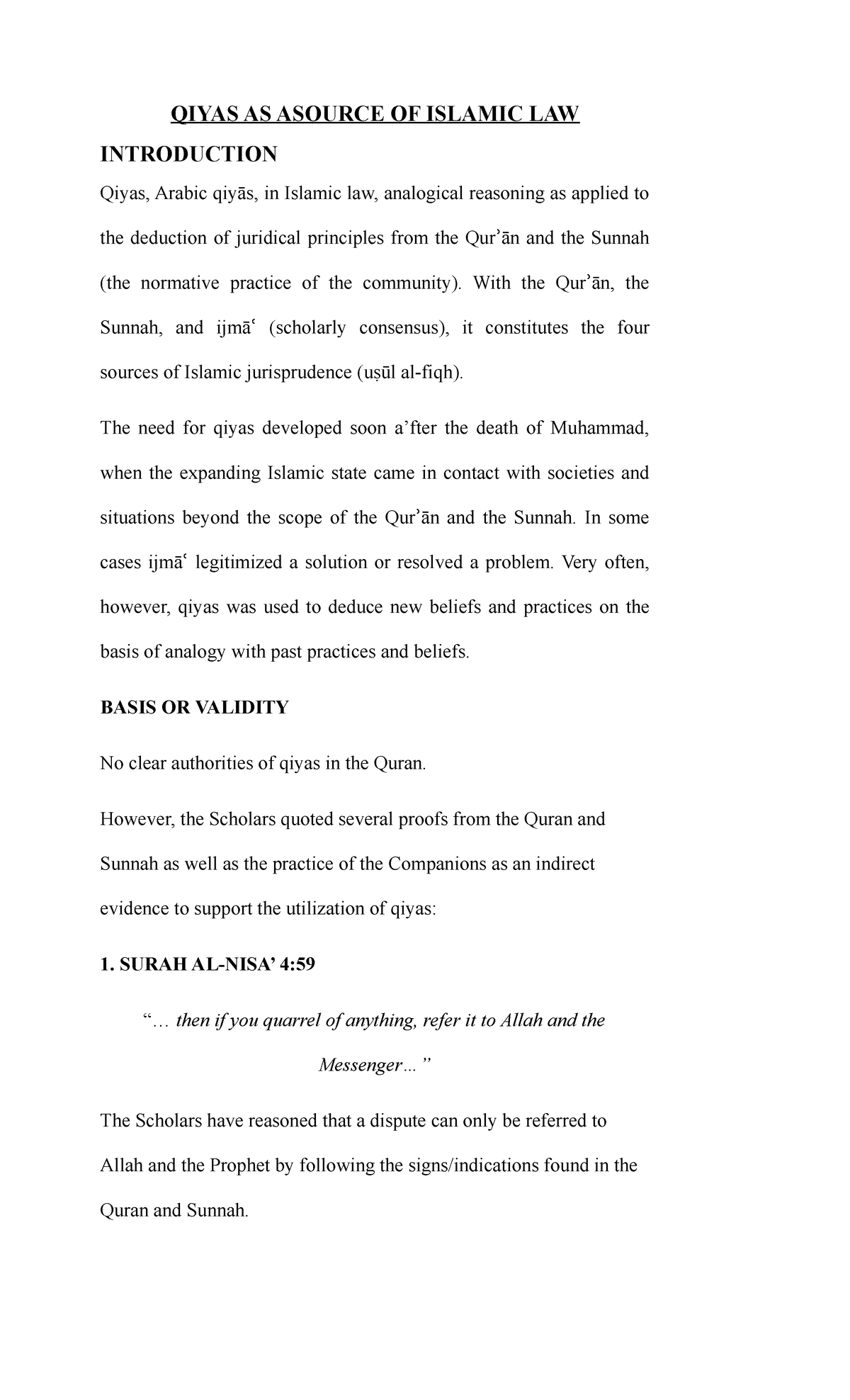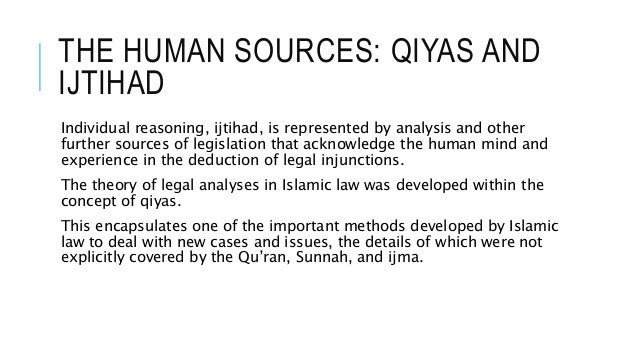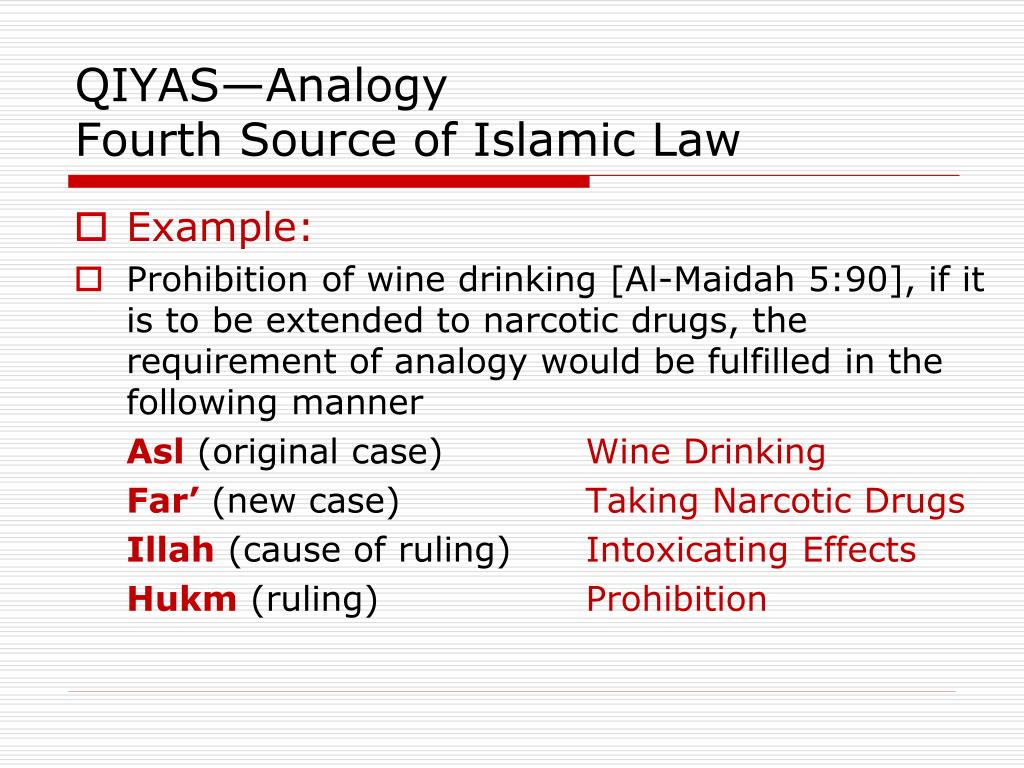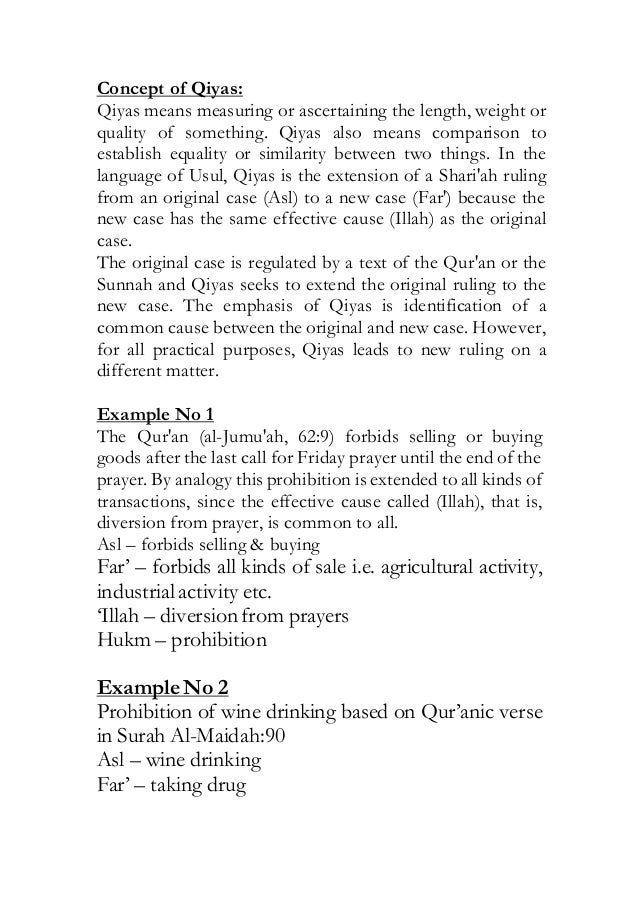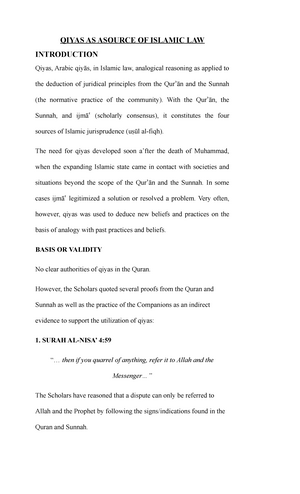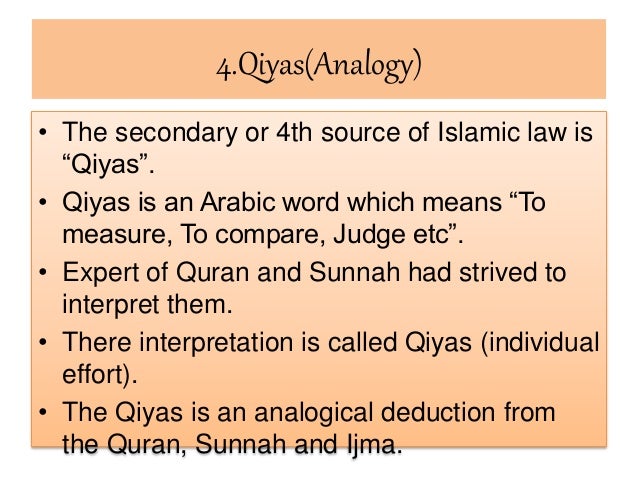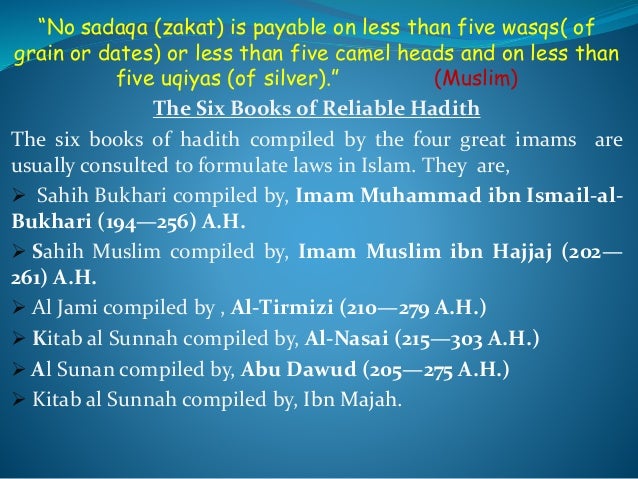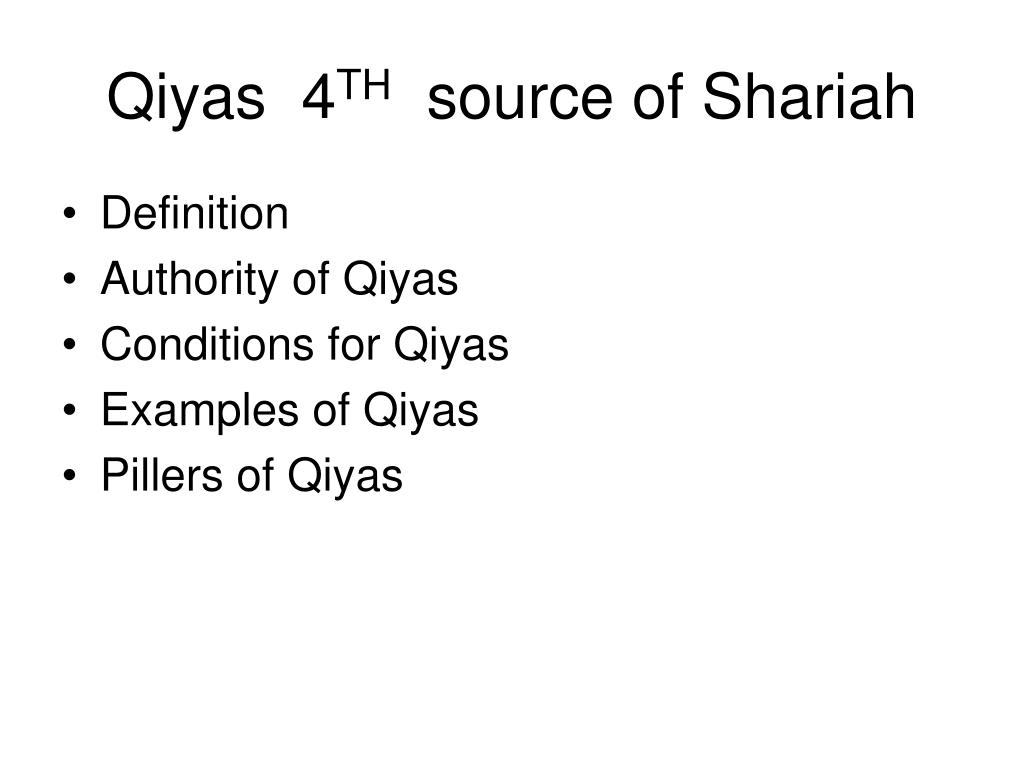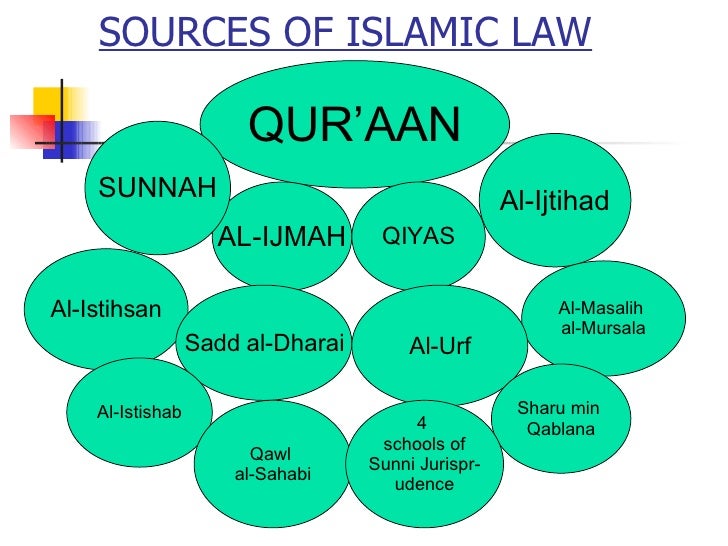Qiyas Islamic Law

Qiyas provided classical muslim jurists with a method of deducing laws on matters not explicitly covered by the quran or sunnah without relying on unsystematic opinion ray or hawa.
Qiyas islamic law. In islamic jurisprudence qiyās arabic. Ijma consensus of the opinion ijma the secondary source of islamic law which means the general agreement or consensus among the muslim community about any matter affecting the muslims in the light of quran and sunnah. The relevance of qiyas analogical deduction as a source of islamic law in contemporary time. With the qurʾān the sunnah and ijmāʿ scholarly consensus it constitutes the four sources of islamic jurisprudence uṣūl.
قياس is the process of deductive analogy in which the teachings of the hadith are compared and contrasted with those of the qur an in order to apply a known injunction nass to a new circumstance and create a new injunction. In islamic law the deduction of legal prescriptions from the quran or sunnah by analogic reasoning. Here the ruling of the sunnah and the qur an may be used as a means to solve or provide a response to a new problem that may arise. With the qurʾān the sunnah and ijmāʿ scholarly consensus it constitutes the four sources of islamic jurisprudence uṣūl al fiqh.
Qiyâs can be defined as taking an established ruling from islamic law and applying it to a new case in virtue of the fact that the new case shares the same essential reason for which the original ruling was applied. Qiyas arabic qiyās in islamic law analogical reasoning as applied to the deduction of juridical principles from the qurʾān and the sunnah the normative practice of the community. It is one of the methods of fiqah or islamic jurisprudence. According to this method the ruling of the quran or sunnah may be extended to a new problem provided that the precedent asl and the new problem far share the same operative or effective cause illa.

